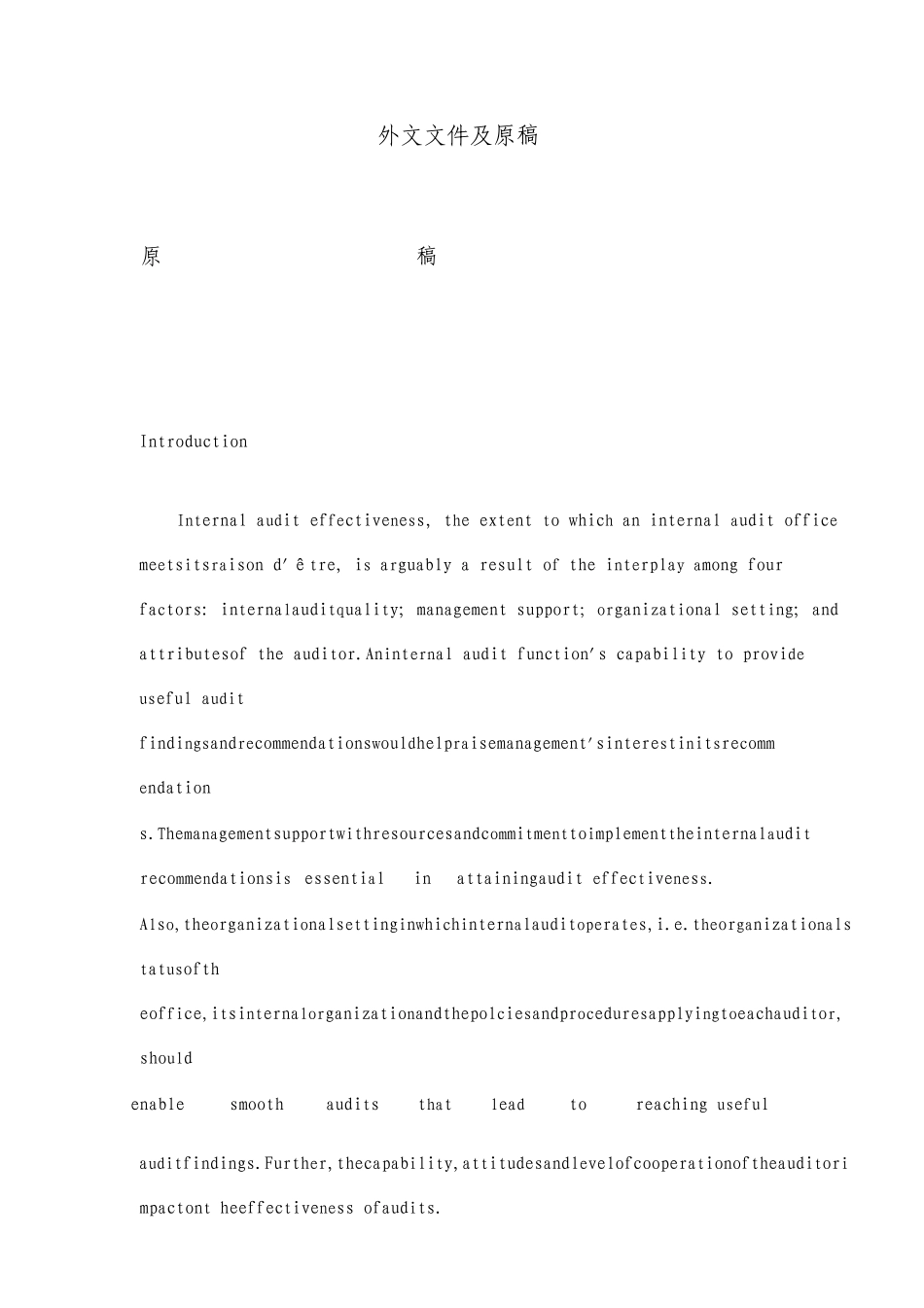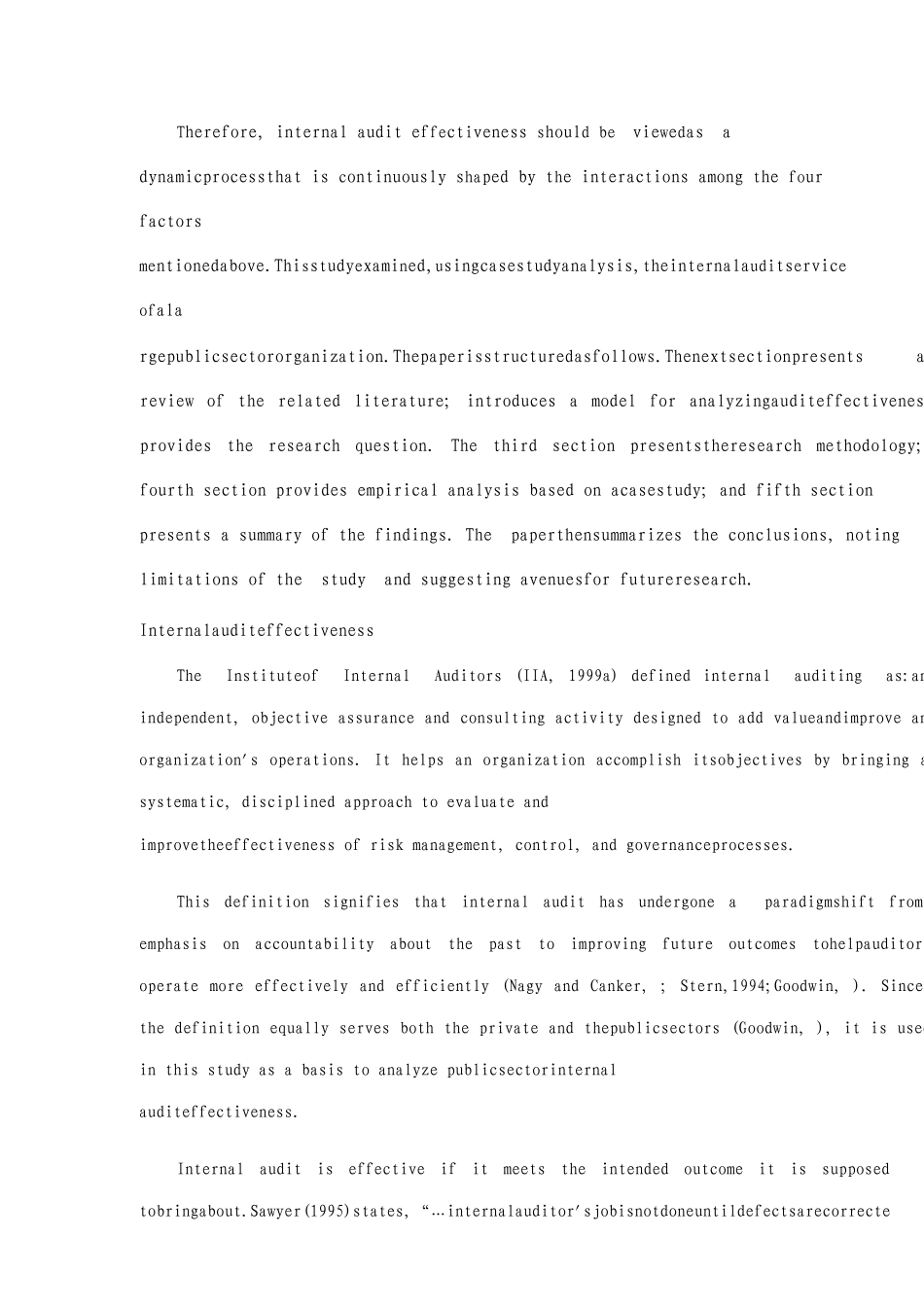外文文件及原稿 原 稿 Introduction Internal audit effectiveness, the extent to which an internal audit office meetsitsraison d'être, is arguably a result of the interplay among four factors: internalauditquality; management support; organizational setting; and attributesof the auditor.Aninternal audit function's capability to provide useful audit findingsandrecommendationswouldhelpraisemanagement'sinterestinitsrecomm endations.Themanagementsupportwithresourcesandcommitmenttoimplementtheinternalaudit recommendationsis essential in attainingaudit effectiveness. Also,theorganizationalsettinginwhichinternalauditoperates,i.e.theorganizationalstatusofth eoffice,itsinternalorganizationandthepolciesandproceduresapplyingtoeachauditor, should enable smooth audits that lead to reaching useful auditfindings.Further,thecapability,attitudesandlevelofcooperationoftheauditorimpactont heeffectiveness ofaudits. Therefore, internal audit effectiveness should be viewedas a dynamicprocessthat is continuously shaped by the interactions among the four factors mentionedabove.Thisstudyexamined,usingcasestudyanalysis,theinternalauditserviceofalargepublicsectororganization.Thepaperisstructuredasfollows.Thenextsectionpresents a review of the related literature; introduces a model for analyzingauditeffectivenes provides the research question. The third section presentstheresearch methodology; fourth section provides empirical analysis based on acasestudy; and fifth section presents a summary of the findings. The paperthensummarizes the conclusions, noting limitations of the study and suggesting avenuesfor futureresearch. Internalauditeffectiveness The Instituteof Internal Auditors (IIA, 1999a) defined internal auditing as:an independent, objective assurance and consulting activity designed to add valueandimprove an organization's operati...


